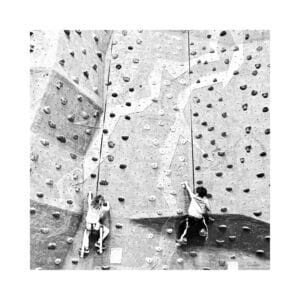Whether we like it or not, there are two truths in parenting: parenting challenges are here to stay and the kids will keep learning more from our actions. Therefore, preparing for parenting challenges is key. As parents, we first want to equip ourselves with the knowledge and tools to prepare mentally and emotionally for the challenges ahead. In addition, we want to understand what factors impact our actions and how to cultivate the desired actions within us.
At the heart of these goals is learning.
To create a strong foundation for learning, in the Becoming Lab we focus on six areas that can be remembered by the acronym BECOME: Brain, Emotions, Compassion, Optimism, Mindset, and Expertise. Familiarizing ourselves with these areas and integrating them can help us to learn smarter, better understand ourselves as learners as well as set realistic expectations for the journey ahead.
Let’s dive in.
Becoming Lab’s Six Areas of Focus

Brain
Since parenting is a learning journey, we educate ourselves about the human learning organ. Understanding the brain better can help us learn smarter. Neuroscience shows that there are various factors that impact learning, such as needs, beliefs, emotions, environment, and the context we are in. Becoming aware of the brain’s natural mechanisms, its gifts, and limitations, and learning how to work with them will create strong learning foundations and ease the progress towards our parenting aspirations.
Emotions
Sadly, many of us didn’t get proper education about our emotions. Not only that, it’s common to hear adults saying that they suppress or ignore their emotions and yet, expect themselves to teach their kids about emotions. Emotions are signals. They carry valuable data that teaches us whether our needs are being met, whether our values are being exercised, whether we are safe, and more. Noticing what brings us joy and satisfaction is equally important as noticing what triggers uncomfortable emotions like fear, shame or anger. Learning to name emotions, accept them, and discover the deep meaning beneath them helps us connect with our values, take new perspectives, and make courageous choices that are better aligned with our aspirations.
Compassion
Compassion is the sense of concern and care we feel when someone suffers. It’s what we and our kids need when things get hard. While scientific findings show that basic human nature is compassionate, it takes practice to nurture a genuine flow of compassion during conflicts. Non-Violent Communication is considered the language of compassion and is one of the best approaches to develop compassion for ourselves and others.
It is based on a fundamental principle: underlying all human actions are needs that we are all seeking to meet. When our needs are not being met, our capacity to be compassionate is limited. In addition, unmet needs often trigger undesirable actions and inhibit our ability to learn. When we learn strategies to meet our needs it positively impacts our readiness to learn and nurture a sense of compassion for ourselves and others. It also deepens our connection with others and leads to collaboration and peace.
Optimism
Parenting is a journey filled with ever-changing challenges. The challenges keep changing as the kids grow, as the family expands, and as we evolve. Cultivating optimism is not about diminishing or ignoring difficulties. It’s about seeing the difficulties in a larger context that includes all the good things we have in life and the progress that we have made till now. Practicing appreciation and reframing fosters optimism, which strengthens the sense of hope and motivates us to find constructive ways to move forward.
Mindset
Decades of research led by Stanford Professor Carol Dweck shows that when we hold a growth mindset – a belief that human abilities are malleable, it motivates us to engage in learning-oriented behaviors such as learning from mistakes and persevering. When we approach parenting with a growth mindset, with a belief that we can develop our parenting skills and the relationships we have with the kids, we focus on learning from parenting challenges (rather than blaming and judging) and open to exploring new strategies to progress towards our aspirations.
Expertise
Transforming our actions requires the development and integration of various skills. Research led by Anders Ericsson teaches us how to get better at things that are important for us. It starts by getting clarity on where we are now in relation to the qualities we want to cultivate in ourselves and in our home. Then, we want to focus on deliberate practice – intentional practice in which we seek to improve in areas that we haven’t mastered, focusing on a very specific sub-goal, with full attention, feedback, and an ongoing process of refinement. Deliberate practice takes time, effort, patience, and focus but it gradually leads to the desired progress we seek.
How can we apply this knowledge?
- Care for your emotional and physical wellbeing – your physical and emotional needs impact your brain, hence your ability to learn. If we regularly live with stress and fatigue, for example, we want to start reflecting on questions like: how can we cultivate more peace and rest? What strategies can help us feel more centered? What are some small steps we can take each day to enhance our readiness to learn? To make our learning journey effective, we start honoring and treating ourselves as learners – we intentionally develop skills and routines to meet our needs and care for our wellbeing. This learner-centered principle will set us up to approach the learning journey and inevitable challenges ahead with more calm, optimism, and compassion.
- Explore and experiment – as parents we want our kids to take ownership of their learning – to explore areas that can advance their knowledge and experiment with various strategies to advance their skills and abilities. As parents who aspire to educate by example, we do the same. In the Lab, we draw insights from daily challenges and leverage them to advance our abilities. We explore: (1) the needs and beliefs that drive our actions in challenging moments and (2) strategies to meet our needs and transform limiting beliefs. Additionally, we invite challenges by experimenting with various science-based strategies and routines to redesign our minds and environment to support a lifelong learning journey.
- Intentional practice – whether you realize that you have neglected your wellbeing or discovered a parenting belief that is keeping you stuck, the journey to transform your experience requires daily practice. Don’t expect to do better, just because you know better. Meet yourself where you truly are and identify a skill you want to cultivate. Focus on the learning and development of sub-skills so you can role model what you deeply want. Most importantly – set realistic expectations – intentional practice takes time, attention, refinement, and efforts that eventually lead to structural change in the brain. This change creates a new foundation for the values and qualities we want to cultivate.
This is just a nutshell. Becoming is a process of change – a process in which we evolve and take our abilities to a new level. In future posts we will continue our journey in exploring how these concepts come to life in daily experiences. In the meantime, which concepts are most intriguing for you right now? What questions do you have?


